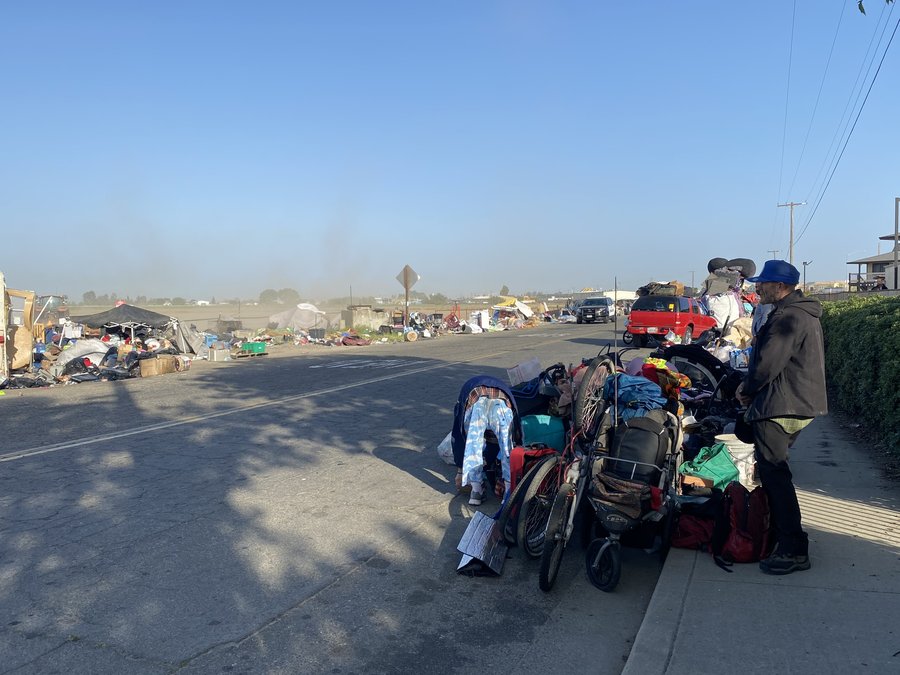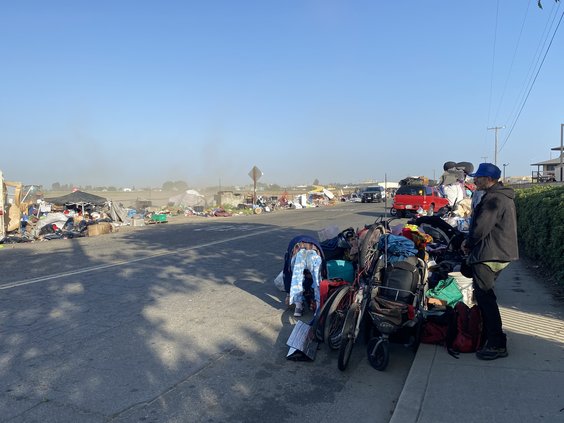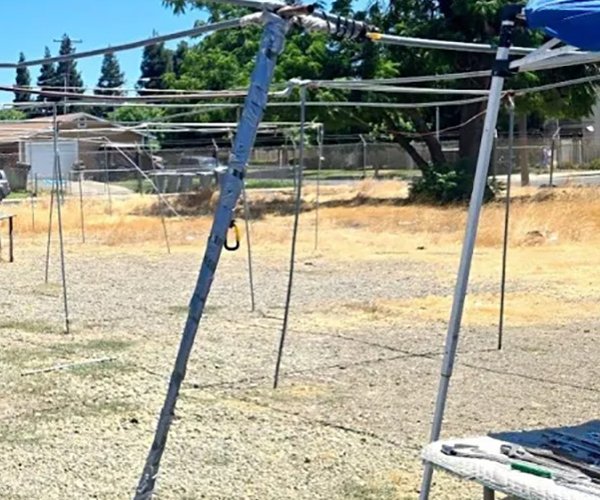Vice Mayor Pam Franco and Council member Rebecka Monez unveiled their highly-anticipated recommendations for addressing Turlock’s homelessness crisis during Tuesday night’s City Council meeting, presenting a multifaceted strategy divided into nine parts.
Franco and Monez were appointed by Mayor Amy Bublak to form an Ad Hoc Committee on Homelessness in June 2021, and since then have consulted with local healthcare agencies, homeless shelter providers, churches and more in order to create their plan. Pointing to a report published by Legacy Health Endowment in 2019 which underscores Turlock’s problems in addressing homelessness, the presented plan emphasized the importance of helping those in need while also encouraging and enforcing community standards.
A previous local emergency declared by the City of Turlock removed large encampments from the City’s streets, Monez explained, and the current local emergency is focused on long term solutions.
“Now we’re looking into moving into the direction of addressing the very serious underlying triggers and circumstances of homelessness, which is primarily mental health, illness and substance use disorders,” Monez said. “For us to be able to effectively and compassionately help those that are suffering from homelessness, we absolutely have to address the underlying root cause and can’t just keep putting a Band-Aid on it…”
Tuesday’s presentation was simply an information item, and while the Ad Hoc Committee on Homelessness did explore the costs of helping to fund Turlock’s local nonprofits, any spending will be brought back for approval at a later date.
In short, the plan aims to make strides in helping homeless individuals through providing beds and access to healthcare, mental health treatment and other options. Monez made it clear that a priority of the plan is to also protect the rights of Turlock citizens to live in a clean and safe city.
The plan recommends Turlock continue to work with local service providers, but also consider working more closely with the city’s churches, who the report states are more than willing to help — even offering to allow homeless individuals to stay at their sites. The committee also recommends Turlock police officers and City employees receive training in dealing with homeless individuals compassionately, with the Turlock-based Genesis Behavior Center offering training as part of what would be a pilot program.
The plan also calls for working to prevent homelessness before it occurs, especially in families with children, and providing immediate care and intervention to homeless individuals who are discharged from the hospital through Covenant Care at Home. Vacant or underutilized City land would also be explored as viable options for long term solutions as part of the plan, and First Behavioral Health Urgent Care Center is suggested as a provider for bilingual social workers to provide services to the homeless at a cost of $400,000. Another contract with a mobile healthcare services clinic is estimated to cost $350,000. Legacy Health Endowment is also seeking a grant of $200,000, which the organization will match, to provide no-cost family care for families caring for aging parents, those with dementia or Alzheimer’s and disabled children or adults.
Monez also said she hopes Turlock can serve as a leader when it comes to legislation, and recommends the City advocate for reform of laws that prevent enforcement of local ordinances. The plan also addresses housing in addition to shelter beds, as well as anti-panhandling signs outside of local businesses.
The committee also recommended that evaluations should take place every six months so that the City can decide whether or not to continue funding various efforts that work or don’t work.
“Going forward, I want to operate on the premise that this homeless plan is going to be a living plan…This is not something that I want to just put forward and then we walk away and don’t look at it,” Monez said. “It’s critical that we keep tabs on this plan…Because folks, if there is one thing I’ve learned over the last eight months, there is no one-size-fits-all approach.”
Some community members questioned the effectiveness of the plan, given the ever-growing crisis, but Council member Andrew Nosrati pointed out that homelessness is something affecting not just Turlock, but the entire state. Others who spoke during public comment wondered if the plan was criminalizing homelessness, since there is emphasis on enforcement.
“I have to trust that my colleagues and everyone that’s working on this issue does have an incredible degree of compassion and empathy for those that are suffering, and we’re doing this because we want to see things better for people,” Nosrati said. “I know it’s a very politicized issue and sometimes we get upset about the methods in which we’re going to be trying to address it, but I think you know from seeing what I’m seeing here and the fact that this is being prioritized speaks to the fact that there is a strong degree of compassion.”
The Council voted unanimously to accept the Ad Hoc Committee’s report, directing city manager Reagan Wilson to return to Council with proposed expenditures to be voted on. To view the report in full, visit https://www.cityofturlock.org/_pdf/downloadpacket.asp?dept=CityCouncil&id=764 and scroll to agenda item 9A.








